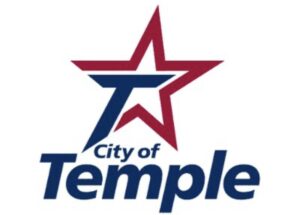Witch Hunt? Temple’s Proposed DEI Program to Search Out ‘Unintended Barriers’
 Is the city of Temple about to embark on a witch hunt searching for real or perceived bigotry, racism and bias?
Is the city of Temple about to embark on a witch hunt searching for real or perceived bigotry, racism and bias?
It’s a fair question as the city’s Diversity, Equity and Inclusion (DEI) Commission has proffered a proposal to hire Nova Collective, a self-described “women-owned, BIPOC led company devoted to transforming organizational cultures, no matter where they are on the DEI journey.” For those unfamiliar with the terminology, BIPOC (all caps apparently preferred) commonly refers to those who are black, indigenous and people of color.
More about Nova
The company additionally describes itself:
Nova was co-founded by four women determined to change ‘business as usual’. With decades of experience in advertising, communications, and diversity & inclusion, the Nova founders brought their unique superpowers together to create a change-making organization. Through the years, our Nova team has grown to include multiple practice areas and a variety of cross-industry experiences – continuing to strengthen our team’s ability to solve organizational challenges.
At Nova we believe that everyone deserves to work in an inclusive environment where they can thrive. We are a women-owned, BIPOC led business committed to evolving organizational culture and ensuring that everyone has an equitable opportunity to succeed.
Translation, please
This is politically correct speak for “transforming” organizations into 21st century social justice warrior encampments.
The language seeks to package a specific belief system into an organizational development program. Nova’s infusion of this mindset is available to city of Temple taxpayers for $112,000.
And speaking of the language, once the philosophy and vocabulary is understood, writing in politically correct-speak is not that difficult. For instance,
Traditional governmental and corporate constructs house organizations with cultures challenged to understand – much less meet – the diverse and equitable standards required for ensuring today’s standard dictates for inclusivity and tolerance.
As a fiscally-minded Temple taxpayer, the city is welcome to this nonsensical turn of phrase at no charge.
Let the witch hunt begin?
City Manager Brynn Myers says the company would “help the city determine if there are any unintended barriers to various diverse groups in Temple” by conducting a survey of Temple employees and reviewing existing practices. And what might those barriers be? Or better yet, who might they be?
This is where bigotry, racism, bias and all the other social justice offenses enter the picture. Whether in corporations or governmental organizations, DEI programs are often based on racial and sexual politics. Per Christopher Rufo of the Manhattan Institute, programs can include “the most virulent strands of critical race theory and gender ideology.”
Dissecting the language
“Committed to evolving organizational culture.” This suggests directional cultural changes which, with any evolutionary track, some generally continue forward in a new direction while others don’t. Stated differently, survival of the fittest. Or in this case, advancement of a chosen lot? Or even a purge of those deemed unfit? That’s the gist. And in this evolution, who is the arbiter of “fit”? Sounds like the DEI Commission.
Equal opportunities are a great thing. Something even enshrined in our laws. Ensuring “equitable opportunity,” however, suggests an environment in which special, unequal access to potential success paths is granted for individuals deemed more worthy or in greater need than others. Make no mistake. Equal and equitable opportunity are not one and the same. That’s why we don’t have a Diversity, Equality and Inclusion Commission.
Local push back
The potential hiring of this firm has been met with local push back including a group, Concerned Christian Citizens. DEI supporters predictably focus on this group’s position regarding the potential promotion of homosexual and transgender agendas which often accompanies DEI initiatives. From a public relations standpoint, however, this is low-hanging fruit for DEI advocates to use in attempting to discredit their opposition while failing to address bigger picture issues.
Liberty-oriented citizens should be aware of taxpayer dollars potentially being used to fund serious threats to free thought and independent expression.
Given today’s intolerant social and political landscape along with high profile embracement of irrational leftist policies (pregnant men anyone?), Temple taxpayers regardless their religious (or lack thereof), political and/or socioeconomic stance have major cause for concern.
A free society is at issue
And this brings us back to the witch hunt potential of Nova Collective’s action. Three points highlighted by Concerned Christian Citizens and noted in a MassResistance article address additional dangers which routinely flow from DEI programs.
- People described in detail how Critical Race Theory, a veiled foundation of DEI, is not a unifying program at all, but a classic Marxist method of dividing society into “oppressed” and “oppressors.”
- One long-time public employee said that this was being used to discriminate against (and keep the city from hiring) people with certain religious convictions and political beliefs.
- The dysfunctional use of the word “equity” was discussed, and how critical thinking is being discouraged in these programs.
The “oppressed” and “oppressor” is indeed a common theme in CRT/DEI/Marxist ideology and just one concept that sets the groundwork for allegations of bigotry, racism and other bias. It pegs one group with “power” over another and injects remedies for perceived victims of alleged imbalances. Any refutation of this scenario is viewed as denying the existence of systemic problems (like racism) and labels any dissenter as part of the problem.
In the name of confronting bias, it seeks to divide people by celebrating differences at the expense of valuing similarities. This ideology was featured in the Anti-Defamation League-sponsored No Place for Hate “anti-bullying” program formerly used (but quietly discontinued) by the Temple Independent School District.
As also noted above, employee fears of religious and political discrimination are justified and real. Be it what they believe or how they behave, workplaces can be hostile environments to those who don’t comply with restrictive cultural diktats and DEI adds its own particular brand to this mix.
DEI programs inject a narrative of uncompromising speech and thought while establishing punitive protocols for failing to accept new and radical standards. Despite claiming diversity and inclusion as a mechanism for openness, it’s the opposite. It’s the introduction of rigidity in thought and anyone outside the prescribed narrative need not apply. Maybe that’s the ultimate point.
Critical thinking also appears unwelcome on the DEI scene. It invites discernment which can lead to unflattering analysis. Employees who can astutely “read the room” often recognize their choice of either “staying silent to remain employed” or “speak up and be ushered out.” Once again, ultimately the point?
Ask any authoritarian, it’s always better to silence non-conforming points of view than face critics.
The Meta-ffect
City leaders have been salivating over the arrival of Meta and its upcoming $800 million hyperscale data center.
Meta certainly ranks high on the food chain of woke corporations and identity politics – calling cards of the DEI industry. This Nova contract can’t help but be an important step to signal Temple’s progressiveness.
Partnership opportunities are front and center in discussions of Meta becoming a fixture in Temple’s development. “Meta knows that an educated workforce is the key to their continued growth and success,” Mayor Tim Davis told the Telegram. “Meta has a track record of partnering with local school districts to provide innovative opportunities for our students.”
The Telegram additionally notes a Temple ISD demographic study as showing the city to be “an attractive option for those relocating to Central Texas.” Meta will reportedly “provide community grants for local schools, nonprofits and community projects in the Temple area.”
While most residents likely support healthy growth, the current Meta zeal and Nova’s propagation of organizational evolution gives pause to wonder if Temple’s leadership will soon devolve into the Mayor of Meta and his Council of Correctness.
Those community grants that Meta is dangling are enticing to many and a full-fledged DEI effort would likely go far in checking the boxes required for participation.
And the expense? Especially now?
People across this country are tightening their financial belts, some seriously struggling, in the face of rising gas and other energy costs, food bills, housing increases and, once again, taxes.
Many Temple residents – whether in Temple or Belton ISD – face increased taxes due to newly passed bond debt. Of course we’re told new revenue from Meta and the ensuing housing boom it’s ultimately projected to spawn will offset increases. Never mind abounding signs of a cooling real estate market. No one is well served when leaders act as if Temple is immune from economic realities.
People are refraining from purchases both large and small. They are becoming increasingly sensitive to wants v. needs. A show of similar action on the part of cities, counties, school districts would be a well-timed gesture, but instead, local governments increasingly operate in an economic universe bearing no resemblance to that of their average constituents.
The Nova Collective expenditure is a $112,000 “want.” And it’s exceptionally ill timed. This should be remembered with each instance of Temple residents filling their gas tanks, emptying their shopping carts and worrying that next month is likely to be worse.
And speaking of expenditures, city officials should provide taxpayers with financial information regarding the dollars spent in recent years (maybe the last 10) answering lawsuits and other employment actions alleging discrimination or other instances of intolerance and/or bias on the part of the city of Temple and its employees. If Temple has a raging problem, the information is easy enough to provide and can counteract opponents’ suggestion that this is a solution in search of a problem.
Time for Temple city leadership to stand up
At a Sept. 7, 2021, meeting of Temple’s DEI Commission, Mayor Tim Davis took nearly an hour in what’s best described as a struggle session appearing to affirm his support of the group’s concerns and mission. It was a torturous, uninspiring delivery.
An Aug. 2 meeting of the DEI Commission will likely advance hiring of Nova Collective to the Temple City Council. Before the Council votes on this measure, another session is in order.
Be it at a city council meeting or a specially-called town hall event, Mayor Davis and his council – all elected representatives – should directly address constituents and explain their individual positions on this controversial move. No Nova Collective sales presentations. No appointed – not elected – DEI Commission members. No City Manager Brynn Myers or other city staff. Just the city’s elected leaders directly stating their positions to taxpayers.
Officeholders informing citizens of their specific views on this issue is an appropriate expectation. DEI actions’ most dangerous elements include the silencing of opposing viewpoints, squelching of meaningful debate and disregarding independent thought.
City of Temple officials refusing to face concerned constituents ahead of approving the Nova Collective contract will signal that indeed problems exist, but they won’t be solved with a DEI witch hunt.
Lou Ann Anderson worked in central Texas talk radio as both a host and producer and currently hosts Political Pursuits: The Podcast. Her tenure as Watchdog Wire–Texas editor involved covering state news and coordinating the site’s citizen journalist network. As a past Policy Analyst with Americans for Prosperity–Texas, Lou Ann wrote and spoke on a variety of issues including the growing issue of probate abuse in which wills, trusts, guardianships and powers of attorney are used to loot assets from intended heirs or beneficiaries.

